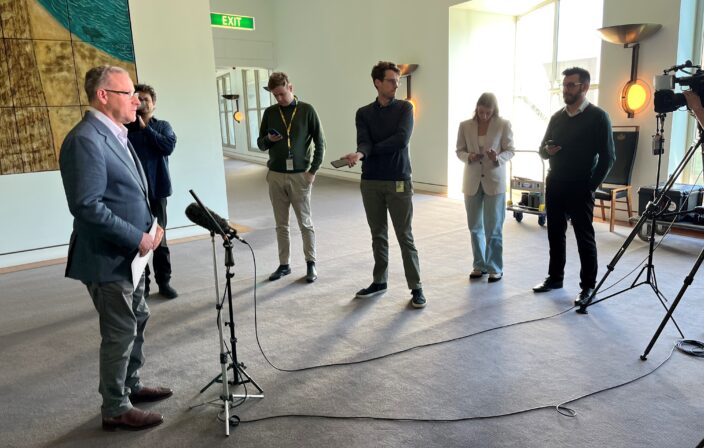ACCI responds to Annual Wage Review decision
3 Jun 2024
|Transcripts
Sky News NewsDay, Monday 3 June 2024
Topics: Annual Wage Review
E&OE
Kieran Gilbert: What’s your assessment of the wage decision today, is it reasonable?
Andrew McKellar: Look, 3.75 per cent, I think this tests the limit of what business would see as being a reasonable outcome. The good thing is it’s nowhere near the extreme position that the ACTU were arguing for, and I think that would’ve been a very bad outcome if we’d gone significantly above inflation, five per cent and more in some sectors. I think from an inflation point of view, broadly, this is neutral. It’s not really reducing the pressure on inflation for business. The real concern is particularly small business at the moment, they’re facing extreme cost pressures from increased regulation, red tape, wage pressures are still there, and if we don’t see productivity really picking up in the next few quarters, then I think that’s going to be a concern.
Kieran Gilbert: What’s the biggest worry right now for small business? Is it the interest rate pressures or falling demand from consumers? What’s the thing that you’re getting from your membership?
Andrew McKellar: There’s a range of things, and there’s no doubt that the confidence took a hit in the first quarter. Orders were weaker, so demand has come off. Interest rates have done their job. But the other thing that we’re picking up, and this is coming through very clearly from small businesses, they’re very concerned about the impact of red tape compliance that’s grown over the past year. It’s growing more, particularly with things like the industrial relations changes coming through in the coming months and coming quarters. Small businesses really struggling just to keep its head above water in terms of the amount of compliance that it’s having to do at the moment.
Kieran Gilbert: But this decision today by the Fair Work Commission, as you said, it tests the limit, but it won’t be putting business over the edge. Will it sort of increase?
Andrew McKellar: I think the one concern we’d have here is, is there a continuing delinking between wages, growth and productivity? We think that this is fine from the point of view of just looking at a neutral position in relation to inflation, but if we want to get real wages moving, we want to see that achieved sustainably. We’ve got to get productivity going.
Kieran Gilbert: I had Tony Burke on the program earlier, the workplace minister, and I asked him, I put some of the criticism from you and others that their IR changes are hurting the prospects for productivity. He rejects that notion. He says there are many other ways to drive productivity right now, and it shouldn’t have to be the lowest paid that have to suffer in order to drive productivity. What do you say to that?
Andrew McKellar: Unfortunately, the government’s industrial relations changes have been crushing and productivity. That’s the reality. And going forward, it will make it much harder for business, for small business to make the decision to employ people going forward. Whether that’s in casual employment, whether that’s independent contractors, whatever it is, that’s a significant additional compliance burden that business is struggling with at the moment. That’s on top of all the other factors. So I’d have to disagree with what Tony Burke said.
Kieran Gilbert: Why is it harder to put on workers moving forward for a small business? If you wanted to put on one or two workers, what are the changes that…?
Andrew McKellar: In terms of the definition of what is a casual employee, the fact that there is much greater uncertainty as to how that will be applied in the future. Of course, business has to adjust now to comply with a number of those changes that have been put through. That is adding to that amount of time that business has to take and the risk when they take somebody on that potentially if they get into a situation of dispute, that they’re going to be tied up with further cost of litigation as a result.


